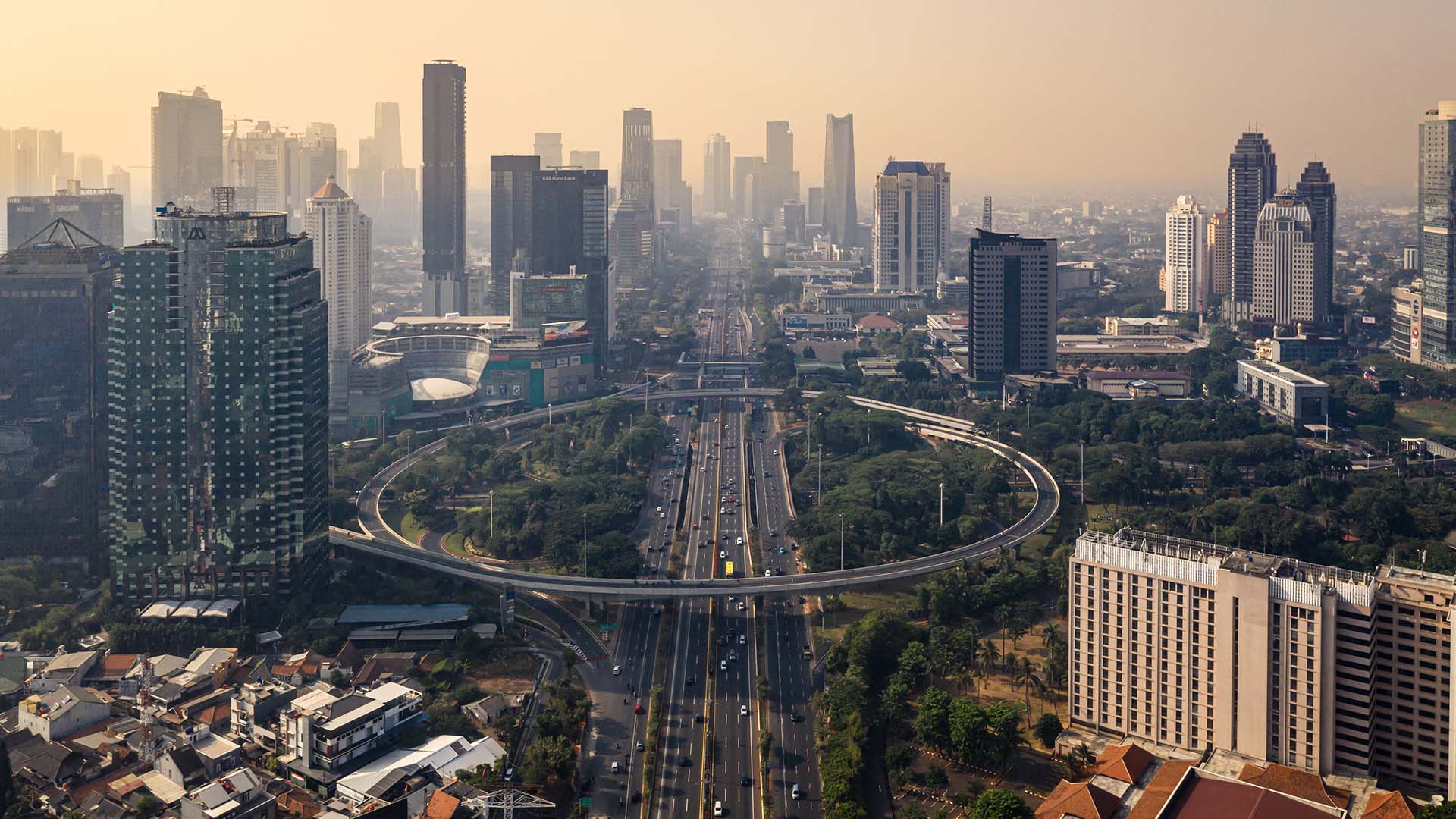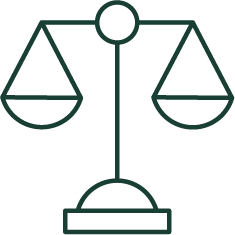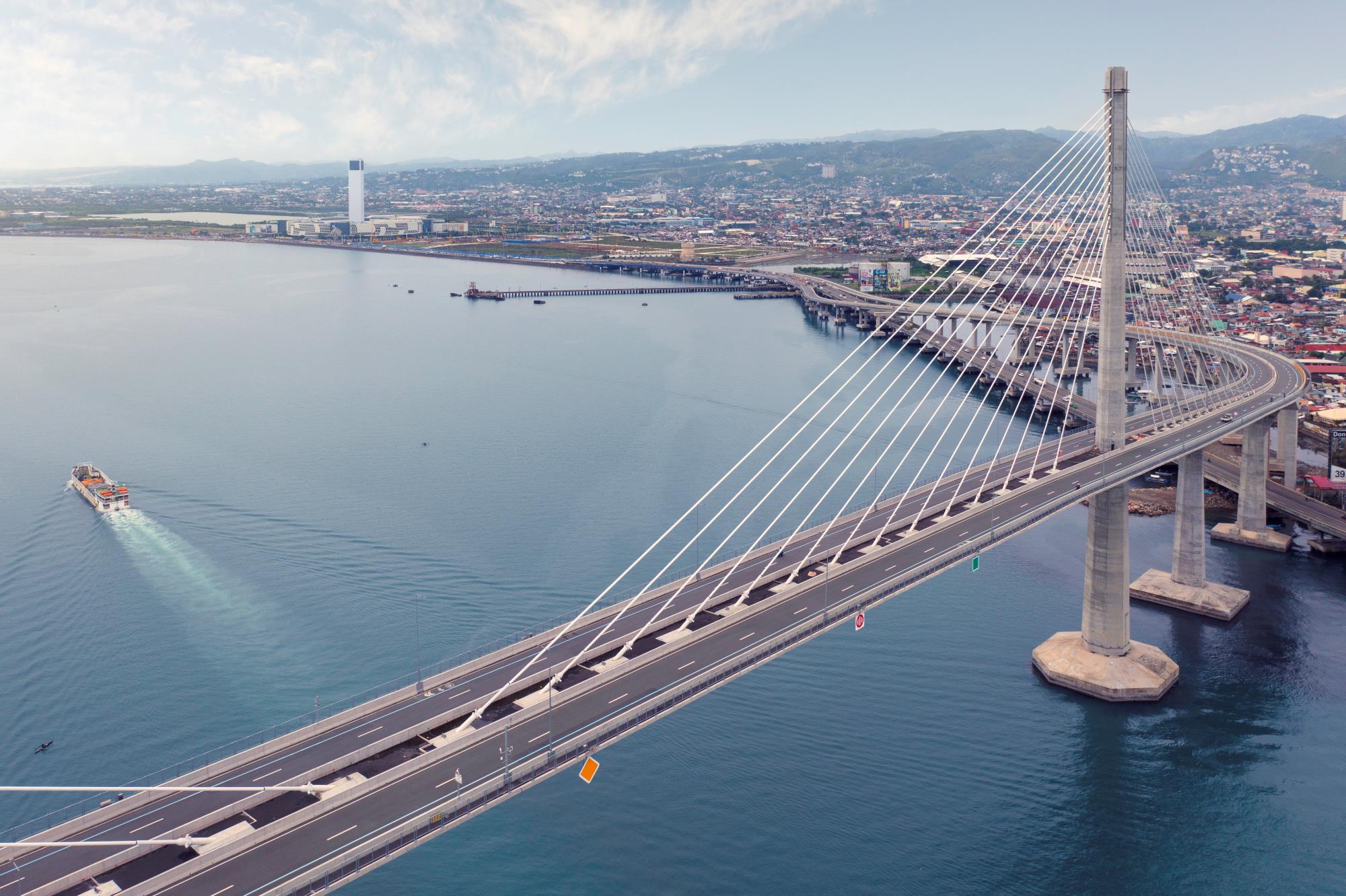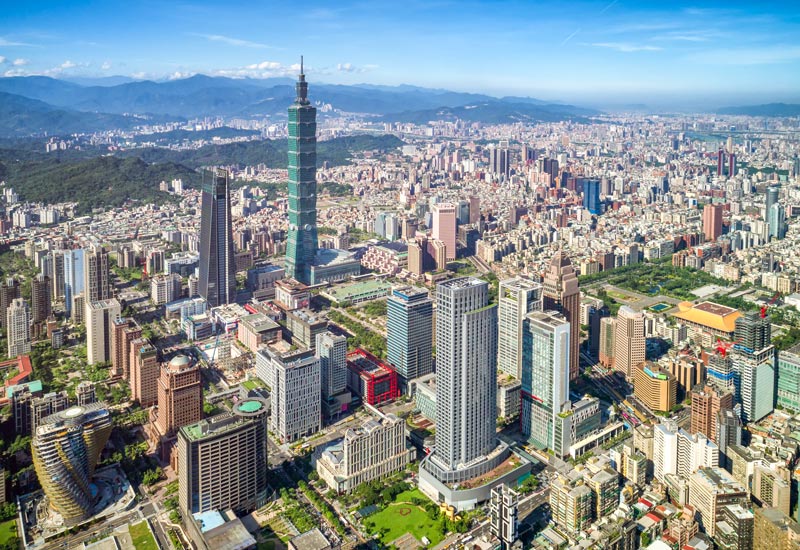Get the right experience for you. Please select your location and investor type.
IMPORTANT NEWS: Transition of investment management responsibilities
First Sentier Group, the global asset management organisation, has announced a strategic transition of Stewart Investors' investment management responsibilities to its affiliate investment team, FSSA Investment Managers, effective Friday, 14 November close of business EST.

Trip report: Is Indonesia still ‘at a crossroads’?
Twenty years ago, the idea that Indonesia was ‘at a crossroads’ was so common that the writers of The Simpsons used it as shorthand for a typical Economist article. (The magazine showed it was in on the joke by repeating it over the next two decades).1
When we were planning our visit to Indonesia, we hoped it would provide us with a less clichéd perspective on Asia’s third-most-populous country2. In the event, it left us with a heightened awareness of the challenges the country faces but also increased our appreciation for a small group of its high-quality entrepreneurial businesses. In political and development terms, the Economist’s cliché has some basis in reality: Indonesia really is at a crossroads. Equally, we believe the way long-term investors should proceed is clear.
Disadvantages: a shrinking middle class and an underperforming education system
Indonesia has had a tough few years. Because groceries account for 50% of spending (compared to 11% in the US)3, the rise in prices seen in 2022-23 squeezed household finances. The country’s middle-class population shrank and there was an abrupt shift in household spending toward basic necessities. Sadly, another result was an increase in online gambling fuelled by desperation. In 2023, Indonesian households lost approximately USD30 billion to online gambling4, equivalent to around 6% of the total deposits in the country’s banking system5.
While President Trump’s unpredictable approach to setting trade tariffs means the outlook for the entire global economy is uncertain, that is particularly true for Indonesia. At this time, it is unclear whether tariffs will help it (by encouraging manufacturers to relocate there from China) or hinder it (by slowing the global economy and reducing demand for exports of the country’s abundant raw materials).
Politically, it is not yet clear what path the country will take under the leadership of President Prabowo Subianto, son-in-law of Suharto, the dictator who led the country from the late 1960s to the late 1990s. It remains to be seen whether Prabowo, a former general, will seek to return it to its authoritarian past or follow the outwardly more democratic approach of his predecessor, Joko Widodo – ‘Jokowi’ – the first leader from outside Indonesia’s political and military elite.
"A third of Indonesian children drop out of formal education before completing primary school"
Economically, one of the major obstacles to Prabowo’s bid to transform Indonesia through inward investment is the failure of its education system to produce skilled workers. Perhaps of greatest relevance is the size of the education gap between Indonesia and regional rivals such as Vietnam. While standardised tests are flawed, they paint a stark picture. For example, 15-year-olds in Vietnam outperform similarly aged Norwegians in mathematics while Indonesian students of the same age rank somewhere between Albania and Palestine6. Sadly, many Indonesian children don’t have an opportunity to take these tests at all – around a third of them drop out of formal education before completing primary school7.
Advantages: demographics, essential metals and neutrality
If the shrinking of Indonesia’s middle class and the inadequacies of its education system are obstacles to its development, it also possesses a number of formidable strengths:
- A large and growing population of 283 million8.
- Abundant reserves of metals that are critical to the electrification of the economy, such as copper and nickel.
- A relatively neutral geopolitical stance.
All of this could, along with low wages, help to make it a destination for manufacturers seeking to diversify away from China. Attracting this investment will be key to determining whether it can move beyond being a lower-middle-income economy whose prosperity depends on the export of raw materials.
"Indonesia’s exports of nickel – a key material for batteries – rose from USD2 billion in 2020 to USD33 billion in 2024"9
In 2020, Indonesia took steps to enhance its manufacturing capabilities by banning exports of raw nickel. This move was designed to force mineral ore smelters to build local processing plants. Despite protests from the World Trade Organization (WTO), the International Monetary Fund (IMF), and the European Union, Indonesia’s exports of nickel – a key material for batteries – rose from USD2 billion in 2020 to USD33 billion in 20249.
Under President Prabowo, meanwhile, the country is becoming more assertive in its dealings with multinational companies. Chinese car manufacturers are being encouraged to locate their production facilities in Indonesia in exchange for market access. And, after a dispute which saw a temporary ban being placed on sales of the iPhone 16, Prabowo extracted a promise from Apple to invest in assembling some of its products locally. It will begin making Air Tags and components for its headphones in the country.
Finding entrepreneurial companies matters more than the big picture
Reflecting on our time in Indonesia, we remain hopeful that the country can overcome the challenges it faces. But that is far from a certainty. From an investment perspective, however, how Indonesia’s economy performs relative to its Asian neighbours isn’t the most important thing. Indonesia doesn’t necessarily need to become rich for some of its companies to perform well. Parts of the economy are still dominated by the same family business groups (conglomerates) that have been profiting from their close links to the state since Suharto’s regime. Equally, however, there are honourable exceptions: quality companies with entrepreneurial leaders. We met a number of them during our visit.
Sido Muncul (herbal supplements)

A strong brand, operational efficiency, and a careful approach to pricing have seen Sido Muncul becoming Indonesia’s largest supplier of herbal supplements10.
Because its products are cheaper and higher quality than supplements sold by street vendors, it could, in theory, charge more for them. But because it wants to maintain affordability, it only increases its prices in line with inflation. Under the stewardship of the founding Hidayat family, Sido Muncul has built its business by prioritising customer relationships over short-term profits. That cautious approach allowed it to meet a boom in demand during the covid pandemic despite the disruptions to supply chains occurring elsewhere. We are, however, conscious that its products could be considered as non-essential purchases for Indonesian consumers, meaning sales could be affected should inflation rise again.
Bank Central Asia (banking)

Bank Central Asia (BCA) is Indonesia’s leading private bank. Since its privatisation in 2000, it has been majority-owned by the Hartono brothers, who maintain a low profile despite their wealth.
They have instilled a risk-aware culture that has underpinned the bank’s careful but profitable growth. Its cautious approach to lending has resulted in very low levels (less than 2%) of non-performing loans14. Its reputation for stability and financial strength makes it relatively easy for BCA to attract deposits, giving it a low-cost funding source for its lending activities. It believes relationships are an essential part of business banking, so is expanding its branch network to tap into the next phase of Indonesia’s long-term growth, which seems likely to be led by development outside Java, its most populated and wealthiest island. The main note of caution is its valuation. On a price-to-book basis, which compares a bank’s market value to its underlying book value (its assets minus its liabilities), BCA’s shares trade on a significant premium to those of its local competitors.
Aspirasi Hidup (household and lifestyle retail)

The Wibowos are entrepreneurs. Kuncuro Wibowo grew his father’s business from a single hardware store in North Jakarta into a national chain of more than 240 Azko home improvement and furnishing stores serving Indonesia’s growing middle class13.
Whether it can maintain its current levels of profitability as shopping migrates online remains to be seen. The company’s view is that its physical stores will continue to attract shoppers seeking homewares and that its reputation for quality helps it to stand out from Shopee, Indonesia’s dominant online-shopping platform. We worry that greater transparency on pricing in online retail could make it harder to maintain its current levels of profitability, particularly as e-commerce threatens to weaken its customer relationships.
Alfamart (mini marts)
Djoko Susanto began managing his parents’ market stall aged 17.

The Susanto family now controls one of Indonesia’s largest chains of mini marts. And, although members of the family occupy prominent roles across the business, its day-to-day management has been entrusted to a professional chief executive. In our experience, this is often a good sign. Recently, it has seen its profitability coming under pressure as it opens more stores, particularly outside Java. Over the longer term, however, we believe Alfamart should be a beneficiary of the growing spending power of Indonesian consumers.
Avia Avian (paints)
As Indonesia grows wealthier and its young population forms new households, the demand for paint is also growing11.

Under the guidance of the Tanoko brothers, Avia Avian has become the country’s largest supplier of this widely used and profitable product12. It is anticipating regulatory change by reformulating its paints to eliminate harmful chemicals found in products by its smaller competitors.
With one or two exceptions, company valuations across much of the Indonesian market appear relatively attractive, so we can see no reason not to pay a fair price for high-quality companies and then hold onto them for the long term. In essence, we think Stewart Investors’ clients are best served by owning Indonesia’s best banks and best retailer, and by having selected exposure to some of its best consumer brands. Irrespective of whether Indonesia remains at the crossroads, we look forward to returning to check on their progress.
August 2025
Important Information
This material is a financial promotion / marketing communication but is for general information purposes only. It does not constitute investment or financial advice and does not take into account any specific investment objectives, financial situation or needs. This is not an offer to provide asset management services, is not a recommendation or an offer or solicitation to buy, hold or sell any security or to execute any agreement for portfolio management or investment advisory services and this material has not been prepared in connection with any such offer. Before making any investment decision you should conduct your own due diligence and consider your individual investment needs, objectives and financial situation and read the relevant offering documents for details including the risk factors disclosure.
Any person who acts upon, or changes their investment position in reliance on, the information contained in these materials does so entirely at their own risk.
We have taken reasonable care to ensure that this material is accurate, current, and complete and fit for its intended purpose and audience as at the date of publication. No assurance is given or liability accepted regarding the accuracy, validity or completeness of this material.
To the extent this material contains any expression of opinion or forward-looking statements, such opinions and statements are based on assumptions, matters and sources believed to be true and reliable at the time of publication only. This material reflects the views of the individual writers only. Those views may change, may not prove to be valid and may not reflect the views of everyone at First Sentier Group.
Past performance is not indicative of future performance. All investment involves risks and the value of investments and the income from them may go down as well as up and you may not get back your original investment. Actual outcomes or results may differ materially from those discussed. Readers must not place undue reliance on forward-looking statements as there is no certainty that conditions current at the time of publication will continue.
References to specific securities (if any) are included for the purpose of illustration only and should not be construed as a recommendation to buy or sell the same. Any securities referenced may or may not form part of the holdings of First Sentier Group portfolios at a certain point in time, and the holdings may change over time.
References to comparative benchmarks or indices (if any) are for illustrative and comparison purposes only, may not be available for direct investment, are unmanaged, assume reinvestment of income, and have limitations when used for comparison or other purposes because they may have volatility, credit, or other material characteristics (such as number and types of securities) that are different from the funds managed by First Sentier Group.
Selling restrictions
Not all First Sentier Group products are available in all jurisdictions.
This material is neither directed at nor intended to be accessed by persons resident in, or citizens of any country, or types or categories of individual where to allow such access would be unlawful or where it would require any registration, filing, application for any licence or approval or other steps to be taken by First Sentier Group in order to comply with local laws or regulatory requirements in such country.
About First Sentier Group
References to ‘we’, ‘us’ or ‘our’ are references to First Sentier Group, a global asset management business which is ultimately owned by Mitsubishi UFJ Financial Group (MUFG). Certain of our investment teams operate under the trading names AlbaCore Capital Group, First Sentier Investors, FSSA Investment Managers, Stewart Investors and RQI Investors all of which are part of the First Sentier Group. RQI branded strategies, investment products and services are not available in Germany.
This material may not be copied or reproduced in whole or in part, and in any form or by any means circulated without the prior written consent of First Sentier Group.
We communicate and conduct business through different legal entities in different locations. This material is communicated in:
- Australia and New Zealand by First Sentier Investors (Australia) IM Ltd, authorised and regulated in Australia by the Australian Securities and Investments Commission (AFSL 289017; ABN 89 114 194311)
- European Economic Area by First Sentier Investors (Ireland) Limited, authorised and regulated in
- Ireland by the Central Bank of Ireland (CBI reg no. C182306; reg office 70 Sir John Rogerson’s Quay, Dublin 2, Ireland; reg company no. 629188)
- Hong Kong by First Sentier Investors (Hong Kong) Limited and has not been reviewed by the Securities & Futures Commission in Hong Kong. First Sentier Group, First Sentier Investors, FSSA Investment Managers, Stewart Investors, RQI Investors and Igneo Infrastructure Partners are the business names of First Sentier Investors (Hong Kong) Limited.
- Singapore by First Sentier Investors (Singapore) (reg company no. 196900420D) and this advertisement or material has not been reviewed by the Monetary Authority of Singapore. First Sentier Group (registration number 53507290B), First Sentier Investors (registration number 53236800B), FSSA Investment Managers (registration number 53314080C), Stewart Investors (registration number 53310114W), RQI Investors (registration number 53472532E) and Igneo Infrastructure Partners (registration number 53447928J) are the business names of First Sentier Investors (Singapore).
- United Kingdom by First Sentier Investors (UK) Funds Limited, authorised and regulated by the Financial Conduct Authority (reg. no. 2294743; reg office Finsbury Circus House, 15 Finsbury Circus, London EC2M 7EB)
- United States by First Sentier Investors (US) LLC, registered with the Securities Exchange Commission (SEC# 801-93167).
- other jurisdictions, where this document may lawfully be issued, by First Sentier Investors International IM Limited, authorised and regulated in the UK by the Financial Conduct Authority (FCA ref no. 122512; Registered office: 23 St. Andrew Square, Edinburgh, EH2 1BB; Company no. SC079063).
To the extent permitted by law, MUFG and its subsidiaries are not liable for any loss or damage as a result of reliance on any statement or information contained in this document. Neither MUFG nor any of its subsidiaries guarantee the performance of any investment products referred to in this document or the repayment of capital. Any investments referred to are not deposits or other liabilities of MUFG or its subsidiaries, and are subject to investment risk, including loss of income and capital invested.
© First Sentier Group


